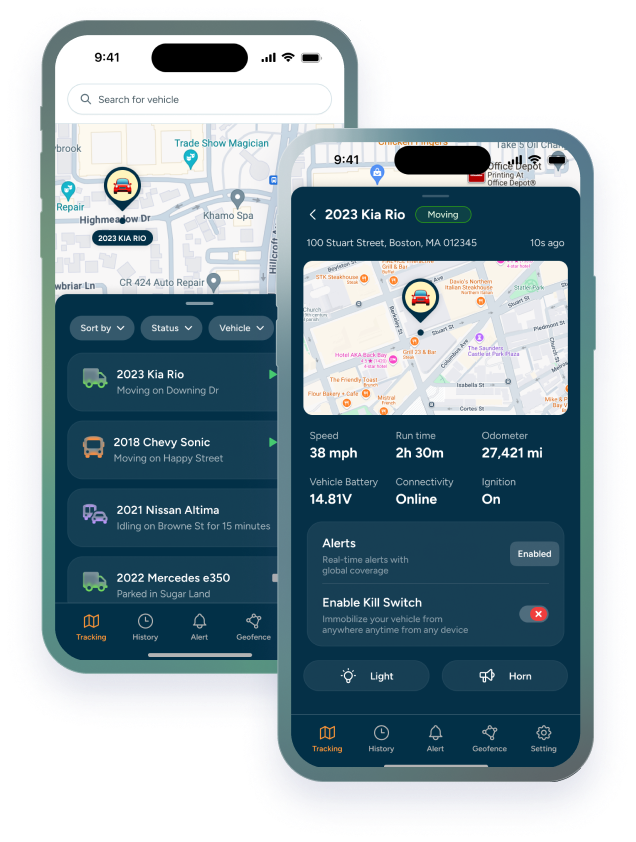GPS technology has become integral to modern life, helping with everything from navigation to tracking vehicles. However, the rise of GPS jammers has sparked concerns, especially regarding their legality and potential risks. This article explores whether GPS jammers are illegal, their impact on GPS tracking systems, and the legal framework governing their use.
What Are GPS Jammers?
GPS jammers are devices designed to intentionally block or interfere with the signals sent by Global Positioning System (GPS) satellites. These jamming devices disrupt the normal functioning of GPS tracking systems by preventing them from accurately determining a location. GPS jammers are also known as GPS blockers, and they can affect various GPS-enabled devices, including navigation systems, cell phones, and tracking devices.
How GPS Jammers Work
GPS jammers operate by emitting radio signals on the same frequency as GPS satellites. These signals overwhelm the GPS receiver, making it unable to determine its location. Jamming devices can have a range of effects, from causing temporary disruption to completely blocking GPS signals within a certain area.
Are GPS Jammers Legal?
United States
In the United States, the use of GPS jammers is illegal under federal law. The Federal Communications Commission (FCC) regulates the use of radio communications and has strict rules against the use of jamming devices. According to the FCC, using a jammer to interfere with authorized radio communications, including GPS signals, is a violation of federal law. This includes jamming devices designed to block GPS signals, as well as other jamming equipment like cell phone jammers.
The FCC prohibits the marketing, sale, and use of any signal jamming device within the United States, except for specific, limited exceptions. For example, certain government agencies, including federal law enforcement and military entities, may use jamming devices in accordance with applicable regulations. However, these exemptions are rare and tightly controlled.
Violating the FCC’s rules on jamming devices can result in severe penalties, including fines, seizure of the jamming equipment, and imprisonment. The FCC also emphasizes that using GPS jammers can pose serious risks to public safety, particularly by interfering with emergency services, air traffic control, and other critical communications.
United Kingdom and Other Countries
Similar to the United States, many countries, including the United Kingdom, have laws prohibiting the use of GPS jammers. The use of these devices is illegal in most jurisdictions around the world due to the risks they pose to public safety and the integrity of radio communications. However, the specifics of these laws can vary, so it is important to be aware of the regulations in your country.
Risks and Impacts of Using GPS Jammers
Public Safety Concerns
Using a GPS jammer can pose serious risks to public safety. GPS signals are used by various government agencies, including law enforcement, to track vehicles, manage traffic, and coordinate emergency responses. Interfering with these signals can prevent first responders from locating people in need, delay emergency services, and disrupt critical infrastructure like air traffic control.
Legal and Financial Consequences
As previously mentioned, using a GPS jammer is a violation of federal law in the United States and can lead to significant legal consequences. Individuals caught using or selling these devices can face hefty fines and potential imprisonment. Additionally, businesses found using GPS jammers to interfere with tracking systems within their operations may face legal action and reputational damage.
Disruption to Commercial Activities
GPS jammers can also disrupt commercial activities that rely on GPS tracking. For example, logistics and transportation companies use telematics to track their fleets and ensure timely deliveries. A GPS jammer can prevent these companies from accurately monitoring their vehicles, leading to operational inefficiencies and financial losses.
Limited Exceptions for Use
There are certain limited exceptions to the prohibition on using GPS jammers. In the United States, these exceptions are primarily granted to federal law enforcement and military agencies for specific operations. Even in these cases, the use of jamming devices is authorized in accordance with strict terms and conditions to minimize the impact on public safety and other authorized communications.
Alternatives to Using GPS Jammers
Given the legality and risks associated with GPS jammers, individuals and businesses should consider alternative methods for addressing privacy or security concerns related to GPS tracking. These alternatives might include:
- Using legal GPS tracking management tools to control and monitor how GPS data is accessed and used within a business.
- Educating employees and users about the importance of GPS tracking for safety and operational efficiency, rather than attempting to block or disrupt these systems.
- Implementing privacy policies that ensure GPS tracking is used responsibly and in accordance with local laws and regulations.
Conclusion
In summary, GPS jammers are illegal in the United States and many other countries around the world. These devices can interfere with authorized radio communications, pose serious risks to public safety, and lead to severe legal consequences for those who use them. While there are limited exceptions for use by certain government agencies, the general prohibition on GPS jammers is strict and enforced by agencies like the Federal Communications Commission.
For anyone concerned about privacy or security related to GPS tracking, it is crucial to seek legal alternatives rather than resorting to the use of jamming devices. Understanding and complying with the laws surrounding GPS technology is essential for ensuring the safety and integrity of communication systems across various sectors.
If you’re considering how to manage GPS tracking in your business or personal life, it’s always best to consult with legal experts to ensure compliance with federal and local laws.

Comments